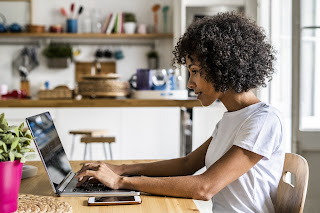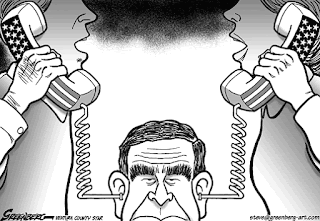Let's start with high school. I grew up in Stillwater Minnesota, a suburb of Minneapolis. I like to call Stillwater the intersection between granola farmers and city slickers. I say this because the people who have family farms are less like traditional dairy farmers (a concept most people in my area are familiar with) but are more modern, organic loving, and sustainability focused. Stillwater is actually the first established town in Minnesota, and is famous for the logging industry. I grew up picking strawberries and going to the drive in during the summer, playing soccer and going to football games in the fall, and skiing every weekend in the winter. Life was good!
This is me in high school, taking senior pictures at the local apple orchard.
I was a relatively ambitious kid; I think I honestly scared my midwestern parents with all of my crazy hopes and dreams. I was always talking about the next best thing, and honestly, was in over my head with all of my commitments. My senior year I took four AP classes, was the president of an 100 person Key Club, was an officer in the large Concert Choir, and participated in three choirs. I took after my two sisters (or at least tried), and did my entire life. My fiery older sister (both in hair and in spirit) was the straight-A student, and my middle brunette sister was a swim team captain. I like to think I was a nice mix of both of those! When it came to college, I was stumped. I was okay in school (I had a B+ average), but was not scientifically inclined. Actually, it was my worst subject! All of my friends were going to school for engineering, and I knew that wasn't an option. English had always been my best subject, next to music. Starting my sophomore year, I toured schools all over Colorado, as that is where my family often went for vacations. I thought I would go to Journalism school at University of Colorado in Boulder. My senior year of high school, I took a journalism class, and realized that the traditional idea of written journalism was something I was extremely uninterested in! I was stuck, and had completely changed my mind. So, I did the only thing I could think of. I decided to pursue music instead. I didn't know what specifically I would do with it, but I knew that it was the thing I enjoyed most. I had applied to multiple schools in Colorado, two schools in Minnesota, and one school in North Carolina. My friend had went to the school in North Carolina, and I decided to apply there on a whim, never having been. I don't even know if I could have picked North Carolina out on a map before that! I sent audition tapes to the music programs at each university, and was given a callback to four, two in Colorado, one in Minnesota, and one in North Carolina. The first school I went to was High Point University in North Carolina, and as soon as I stepped on campus I fell in love!
I had completely changed my mind. I decided to enroll as a double major in Vocal Performance, and Journalism.
Within the first semester I switched my Communication degree to a concentration in Strategic Communication, because I felt like it much better suited me! In my time at HPU, I really did my own thing. I made the system work to fit my own lifestyle. I went abroad, took a semester off, moved to my own off-campus apartment, and worked 2-3 jobs every semester. It was never easy, but super rewarding in the long run! I hope to work for a PR Firm, or in the communications department for a large company in Europe.
I hope this helped you learn a little more about me and how I became the person I am today!
Moving
Change
Life





